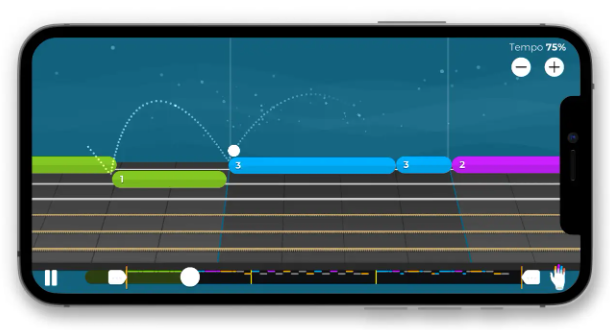I'm always on the lookout for tricks and hacks that make my brain work better. I'm not that bright to begin with, getting older and my job depends on strong problem analysis and decision making so I need every edge I can find. But my most recent discovery stemmed from boredom first, then research. I have come to believe that learning to play the guitar is actually a potent biohack.
Background
My company currently has me on temporary assignment in the Houston area. Last weekend I found myself with some down time. It's really hot and humid outside and on a whim I purchased an entry level guitar. After a little searching I discovered an app called Yousician... Think of this as "guitar hero" but rather than playing a video game you are actually trying to keep up with the music by playing a real guitar.

Lessons After One Week of Strumming
Here are a few lessons learned after one week of trying to keep up with my new favorite video game...
Playing a Musical instrument Is Meditative
Couple of things I discovered right away. Playing an instrument right after coming home from work is a great way to turn off the work related "problem solving mode". It's nearly impossible to think about the problems of the day while concentrating on hitting the next note at the right time. Playing music (or trying to play music, in my situation) is mediative.
Flow State: When you're fully immersed in playing the guitar, you can enter a state of "flow." This has happened to me multiple times now. Flow is when you're completely absorbed in the activity, and time seems to fly by. Your focus is entirely on the music, creating a sense of mindfulness similar to meditation.
Mindful Awareness: Playing the guitar demands your full attention. You need to pay attention to the placement of your fingers, the rhythm of the music, and the sound you're producing. This type of mindful awareness is akin to meditation, where you're intentionally present in the moment.
Repetitive Movements: The repetitive nature of practicing guitar techniques, chords, and scales can be soothing and meditative. The sound of even a single chord and the rhythmic motion of strumming or fingerpicking can create a calming effect, similar to the repetitive movements often used in meditation practices.
Playing the Guitar can Improve Neuroplasticity
I wasn't really aware of this when I started, but it turns out that learning to play the guitar can contribute to improving neuroplasticity. It's important to note that the extent of these effects may vary among individuals based on factors such as the amount of practice, the complexity of the music, and personal engagement, but there is evidence that consistent practice and engagement with the instrument can encourage ongoing brain plasticity and cognitive enhancement.
Here's how it works:
1. Formation of New Neural Connections: Learning to play the guitar involves mastering new motor skills, memorizing chords, scales, and melodies, and coordinating both hands to produce music. These activities require the brain to create new neural pathways, strengthening existing connections and forming new ones.
2. Synaptic Growth and Strengthening: As you practice playing the guitar, the repeated use of specific neural circuits associated with finger movements, memory, and auditory processing leads to synaptic growth and strengthening. This enhances the efficiency of information transfer between neurons.
3. Enhanced Motor and Sensory Processing: Playing the guitar requires precise finger movements, coordination, and control. These actions engage multiple brain regions responsible for motor skills and sensory processing. As you practice, these regions become more interconnected and efficient, contributing to improved motor skills.
4. Auditory Perception and Processing: Learning to play the guitar involves listening to music and identifying notes, chords, and melodies. This auditory processing stimulates various areas of the brain responsible for sound perception, pitch recognition, and music appreciation.
5. Cognitive Flexibility: Switching between chords, scales, and melodies challenges your brain's cognitive flexibility. This ability to adapt to new tasks and information is an essential aspect of neuroplasticity. I find this to be ridiculously difficult!
Anyhow, I kind of stumbled into this, but I'm glad I did. It appears that playing the guitar might be a cheat code for my brain against getting older. As the years roll on, our brains start changing, and not always for the better. Neuroplasticity begins to decline after the age of 25... That ship sailed a long time ago for me. As we age, it is important to stimulate neuroplasticity by challenging your brain to maintain cognitive health. Plus... it's just kind of fun to play....
Barlow out...
